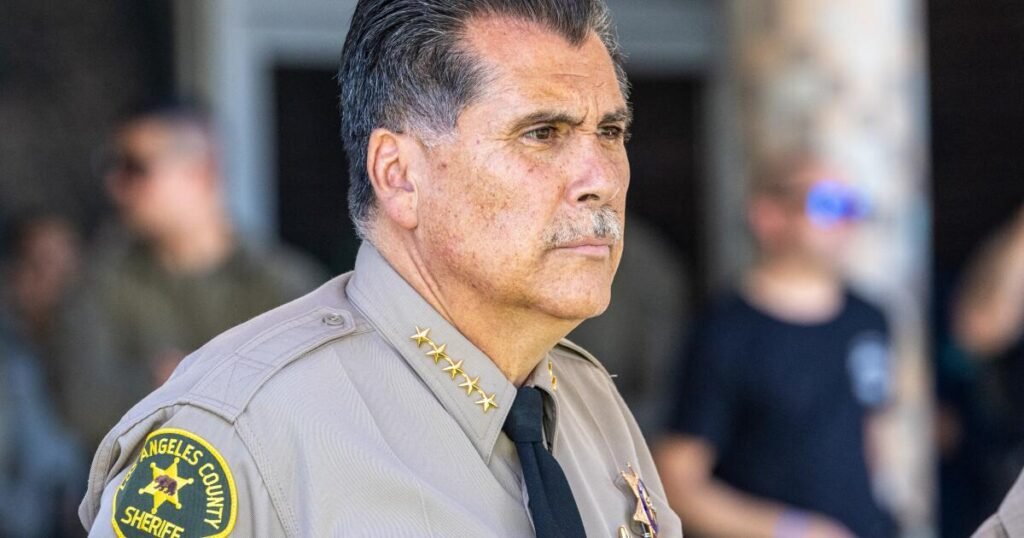On June 9th, just after 12:30 a.m., Los Angeles County Sheriff’s deputies were called to a robbery in progress at a home in Lynwood. When they arrived, they saw 45-year-old Federico Rodriguez through the window holding what appeared to be scissors.
Upon hearing screams from inside, the deputies forced their way into the house. Inside, they discovered Rodriguez actively attacking two women. Sergeant Marcos Esquibel, who was equipped with a body camera, immediately drew his firearm and shot Rodriguez multiple times, resulting in his death.
This incident marked the fifth fatal shooting involving Sheriff’s deputies this year. Rodriguez, thankfully, didn’t take any lives, but his actions led to heightened scrutiny just two days later. The situation sparked a debate surrounding the department’s investigation practices and their approach to using deadly force.
The County Inspector’s Office expressed concern in a letter sent to the Board of Supervisors on June 11, claiming that deputies and staff were obstructed from accessing a shooting scene at the county jail where another lethal encounter occurred.
Inspector General Max Huntsman indicated that the laws enacted over a decade ago granted his office the authority to conduct thorough investigations on-site, which, crucially, included obtaining information from homicide detectives and accessing scenes where bodies remained.
However, Huntsman faced repeated denials from the Sheriff’s Department regarding access. In his June 11 letter, he mentioned an indefinite halt to regular deployment audits concerning shootings and related deaths.
Huntsman pointed out the issues with transparency, stating, “The goal of our visit is to perform an independent investigation, not to get what they choose to divulge.” He asserted that the current situation felt more like a limited glimpse rather than a thorough review.
During a meeting on July 17, Sheriff Robert Luna remarked that his department was undergoing changes. However, disagreements arose regarding whether information access had truly been blocked. Luna admitted he was aware of at least one occasion where access was granted over the past five years.
Inspections and access challenges have been common, according to Huntsman, who emphasized that his office has been turned away from Rodriguez’s residence multiple times since 2020. In a statement, the Sheriff’s Office countered that their claims about limited access during the June incident were inaccurate, insisting that representatives from Huntsman’s office were present and properly briefed.
Huntsman’s criticism continued, indicating a pattern of delays and denied access, highlighting incidents dating back even further. Deputy Director Dara Williams noted that their team tends to arrive at scenes after significant time has passed, making it challenging to gather the necessary evidence.
Williams also pointed out that there had been times where complete access was prohibited, relying solely on the information provided by the Sheriff’s Department, which could be quite limited. New Civic Monitoring Committee chair Hans Johnson underscored the necessity of direct observation to effectively carry out their responsibilities.
At the July 17 gathering, the ongoing struggle for transparency was illustrated by Williams’s mention of a subpoena issued last October, with no documents received as of yet. Luna’s response indicated that while he supported the Office of Inspector General in many instances, access might sometimes be limited to ensure evidence is preserved. However, Williams contested this reasoning, expressing skepticism about fairness in enforcement.
The department’s explanation included a specific incident from earlier this year when access to a shooting scene was denied, raising further concerns about the accountability and transparency of the Sheriff’s Office’s operations.
In summary, the ongoing dialogue reveals underlying tensions between law enforcement and oversight bodies, with questions about transparency and access replaying themselves in the wake of these serious incidents.







